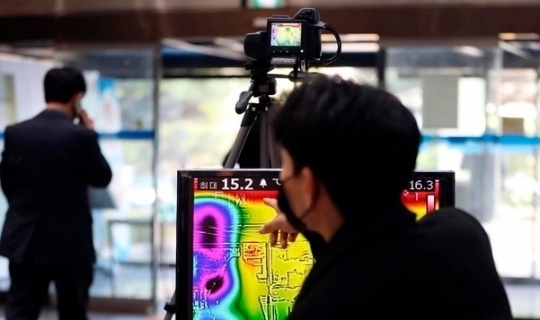Korean firms on edge ahead of shareholders meetings on coronavirus fears
Samsung, Hyundai Motor, SK hynix, CJ expected to use e-voting
By Shin Ji-hyePublished : Feb. 26, 2020 - 14:49

South Korea’s listed companies are on edge ahead of shareholders meetings scheduled for March as the number of COVID-19 cases surges day by day and many shareholders are expected to stay away.
Next month, more than 300 listed companies are slated to hold shareholders meetings to handle issues such as the approval of financial statements and the appointment of in-house directors. Tech giant Samsung Electronics has a shareholders meeting scheduled for March 18, Hyundai Motor for March 19, SK hynix for March 20, Hanjin KAL for March 24 and Posco for March 27.
The anticipated decline in turnout is raising concerns that votes may fall short of a quorum for major resolutions affecting the companies.
To appoint an auditor, the holders of 25 percent of all shares issued in a company must approve the decision. But under the Commercial Act, major shareholders’ votes only count for 3 percent for this purpose. If attendance is insufficient, new auditors cannot be appointed.
Last year, proposals were turned down at 188 listed firms because support fell short of a quorum, including proposals to appoint new auditors. In 2018 proposals failed at 76 companies for this reason.
Many listed companies with offices in China and Daegu, where high numbers of COVID-19 cases are concentrated, have also been forced to delay the preparation of audit reports and business reports. Many accounting firms are refusing to send accountants to Daegu out of fear of the virus. This has forced the postponement of general shareholders meetings until June.
The financial authorities are considering suspending penalties for delays in settling accounts, submitting business reports and convening shareholders’ meetings.
Conversely, if many shareholders do attend the meetings, high attendance rates will raise great concern about the spread of the new coronavirus that causes COVID-19.
According to laws on the prevention and management of infectious diseases, governments and public organizations can restrict rallies and other gatherings to prevent the spread of disease. But there are no legal grounds for private companies to bar suspicious people from entering shareholders meetings.
Accordingly, companies will either move to electronic voting or install thermal imaging cameras at the sites of their meetings, industry sources said. Electronic voting can be authorized by a vote by a company’s board of directors. Such a change would allow shareholders to exercise their voting rights without being physically present.
“Judging from the current situation, it is unclear whether the COVID-19 crisis will subside next month,” said Park Ju-gun, head of research firm CEOScore. “It is highly likely that companies will adopt an electronic voting system.”
Samsung Electronics, Hyundai Motor Group and Hyundai Department Store Group are already set to introduce electronic voting this year. SK hynix, CJ, Shinsegae and Kakao introduced it last year.
At meeting sites, companies will pay attention to hygiene by preparing devices such as thermal imaging cameras and digital thermometers, according to the companies.
Hyosung Group plans to take its shareholders’ temperatures with a thermal camera or a digital thermometer installed at the entrance to the general meeting hall and turn away anyone suspected of having a fever.
Hana Financial Group will install infrared body temperature sensing cameras, hand sterilizers, masks and thermometers at its meeting place. Woori Financial Group plans to install heat detectors and hand sanitizers at the main entrance to its meeting.
By Shin Ji-hye (shinjh@heraldcorp.com)








![[Graphic News] More Koreans say they plan long-distance trips this year](http://res.heraldm.com/phpwas/restmb_idxmake.php?idx=644&simg=/content/image/2024/04/17/20240417050828_0.gif&u=)
![[KH Explains] Hyundai's full hybrid edge to pay off amid slow transition to pure EVs](http://res.heraldm.com/phpwas/restmb_idxmake.php?idx=644&simg=/content/image/2024/04/18/20240418050645_0.jpg&u=20240419100350)






![[From the Scene] Monks, Buddhists hail return of remains of Buddhas](http://res.heraldm.com/phpwas/restmb_idxmake.php?idx=652&simg=/content/image/2024/04/19/20240419050617_0.jpg&u=20240419175937)

![[KH Explains] Hyundai's full hybrid edge to pay off amid slow transition to pure EVs](http://res.heraldm.com/phpwas/restmb_idxmake.php?idx=652&simg=/content/image/2024/04/18/20240418050645_0.jpg&u=20240419100350)

![[Today’s K-pop] Illit drops debut single remix](http://res.heraldm.com/phpwas/restmb_idxmake.php?idx=642&simg=/content/image/2024/04/19/20240419050612_0.jpg&u=)